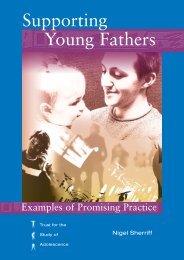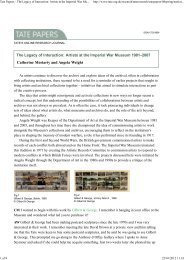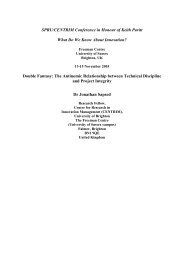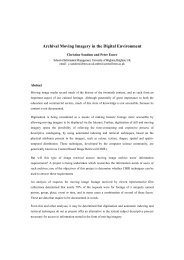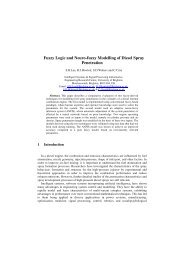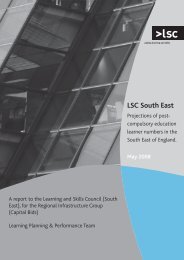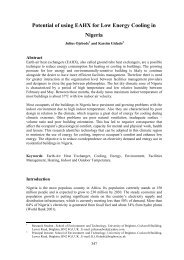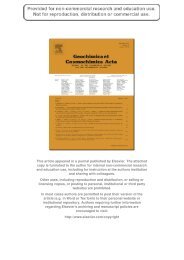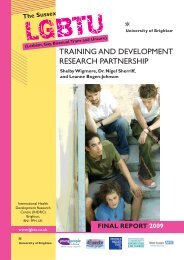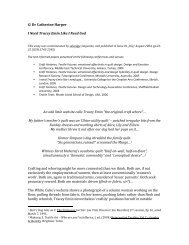a randomised controlled trial (MATISSE). - ResearchGate
a randomised controlled trial (MATISSE). - ResearchGate
a randomised controlled trial (MATISSE). - ResearchGate
Create successful ePaper yourself
Turn your PDF publications into a flip-book with our unique Google optimized e-Paper software.
DOI: 10.3310/hta16080<br />
Executive summary<br />
Background<br />
Objectives<br />
Methods<br />
Health Technology Assessment 2012; Vol. 16: No. 8<br />
Although pharmacotherapy can reduce the symptoms of schizophrenia, many people with this<br />
condition continue to experience poor mental health and social functioning. It has been argued<br />
that creative therapies could provide a complementary approach to improving mental health<br />
through helping people to express themselves, and develop self-awareness and insight. Group<br />
art therapy has been widely used as an adjunctive treatment for people with schizophrenia,<br />
but there have been few attempts to examine its clinical effects and cost-effectiveness has not<br />
been examined.<br />
We undertook a pragmatic, <strong>randomised</strong> <strong>controlled</strong> <strong>trial</strong> (RCT), which was designed to achieve<br />
the following objectives:<br />
■ compare the effects of referral to group art therapy plus standard care with referral to an<br />
active control group plus standard care or to standard care alone on the mental health and<br />
global functioning of people with schizophrenia<br />
■ examine the impact of referral to weekly group art therapy on well-being, health-related<br />
quality of life (HRQoL) and satisfaction with care over a 24-month period<br />
■ examine whether or not any benefits associated with art therapy exceeded those associated<br />
with an active control group<br />
■ compare the costs and cost-effectiveness of group art therapy, active control treatment and<br />
standard care over a 2-year period.<br />
The study was a single-blind, parallel-group RCT of referral to group art therapy plus standard<br />
care, referral to an activity group plus standard care or standard care alone. Participants were<br />
<strong>randomised</strong> via an independent and remote telephone randomisation service using permuted<br />
blocks, stratified by site. The block size was randomly assigned between 3 and 6. Each participant<br />
within the block was randomly assigned to one of the three treatments in proportion to the size<br />
of the block. Participants and clinical staff were aware of to which arm of the <strong>trial</strong> participants<br />
were allocated, but all interviews were conducted by researchers masked to allocation status. Art<br />
therapy and activity groups were run on a weekly basis by a lead therapist and a co-facilitator and<br />
were made available to participants for an average of 12 months.<br />
Participants<br />
Study participants were recruited from inpatient and community-based mental health and social<br />
care services at four centres in England and Northern Ireland. Participants were aged 18 years or<br />
over and had a clinical diagnosis of schizophrenia, confirmed by an examination of case notes<br />
using operationalised criteria. To take part in the study, potential participants had to be willing<br />
to take part in groups and to provide written informed consent. We excluded those with severe<br />
cognitive impairment, those who were unable to speak sufficient English to complete the baseline<br />
(BSL) assessment and those who were already attending art or other creative therapies.<br />
© Queen’s Printer and Controller of HMSO 2012. This work was produced by Crawford et al. under the terms of a commissioning contract issued by<br />
the Secretary of State for Health.<br />
ix



